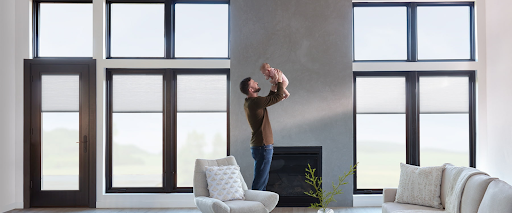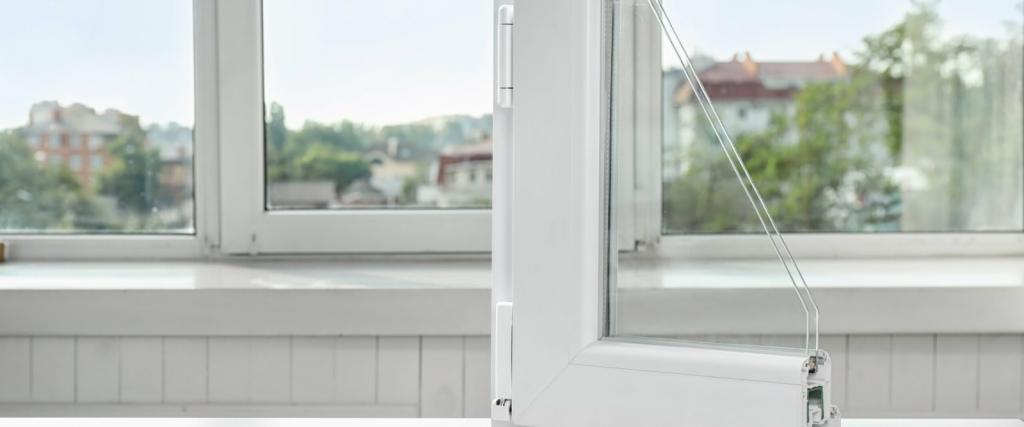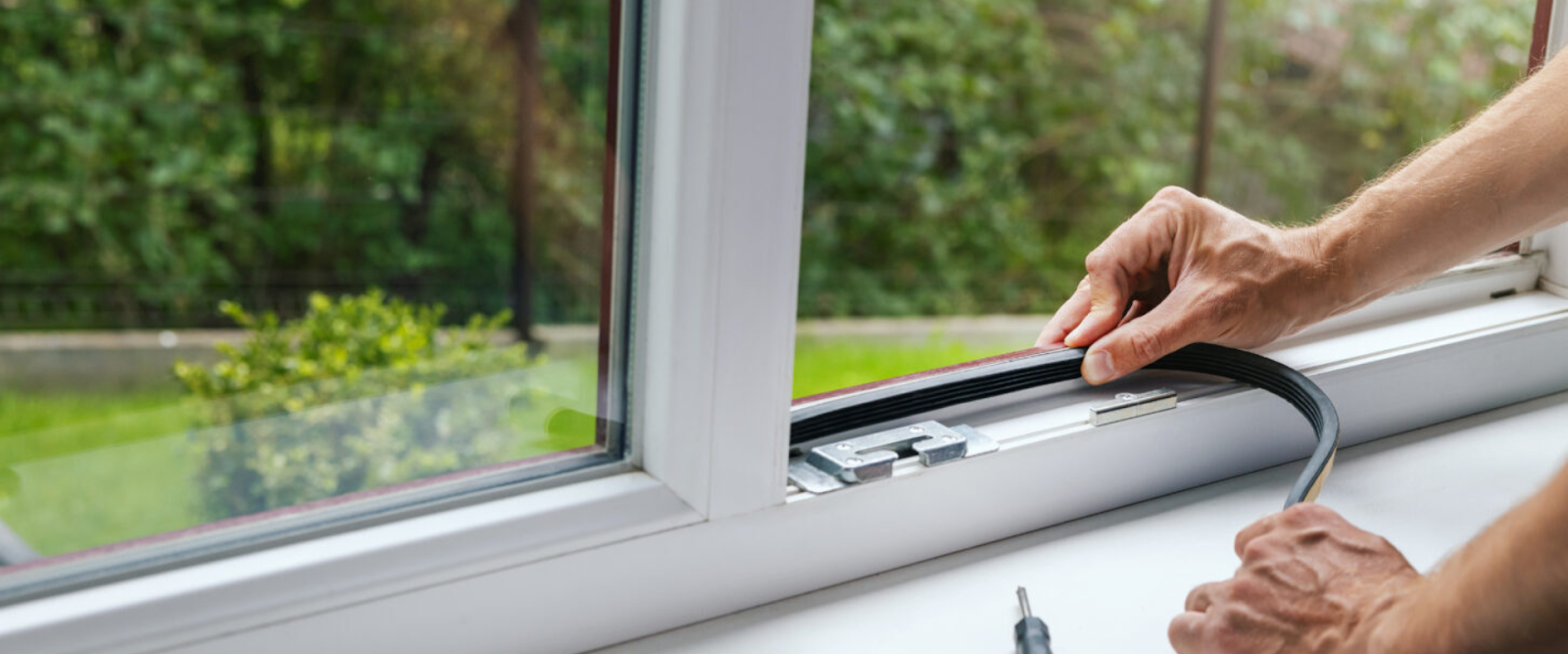If outside noise keeps interrupting your peace at home, you’re not alone. Whether it’s traffic, loud neighbors, or construction, unwanted sound can easily travel through outdated or poorly sealed windows. Learning how to soundproof windows can make a noticeable difference in your comfort without requiring a full renovation.
At Selective Remodeling, we’ve helped countless Long Island homeowners upgrade to high-performance windows that reduce noise, increase energy efficiency, and improve curb appeal.
In this guide, we’ll explore practical, budget-conscious soundproofing strategies, from simple DIY fixes to more advanced upgrades—designed to match your needs and your home.
Why Soundproofing Windows Matters
Noise pollution affects your quality of life, from disturbing sleep to reducing focus. Windows are often the weakest link in your home’s defense against sound. Thin glass, poor seals, or outdated frames let noise seep in. By addressing these issues, you not only block sound but also improve energy efficiency and home comfort. Soundproof window solutions tackle these problems head-on, offering both peace and practicality. For homeowners designing their homes, soundproofing can elevate the overall living experience.
The Science of Noise Reduction
Sound travels through air as vibrations. Older or poorly insulated windows do little to block these vibrations. Effective soundproofing works by
- Adding mass to block sound waves
- Creating air gaps to disrupt vibrations
- Damping materials that absorb sound
By using the right window construction and materials, you can reduce how much noise enters your home while also improving insulation.
Assessing Your Window Noise Issues
Before diving into solutions, identify the type of noise you’re dealing with. Is it high-pitched (like sirens) or low-frequency (like traffic rumble)? The source and intensity of the noise will guide your soundproofing strategy. Check your windows for gaps, cracks, or thin glass, as these are common culprits for noise leaks. Exploring different types of windows can help you find the best fit for noise reduction.
Common Noise Sources
- Traffic: Constant low-frequency sounds from cars or trucks.
- Construction: Intermittent, high-intensity noise.
- Neighbors: Voices, music, or other household sounds.
- Airplanes: Low-frequency rumbles, especially near airports.
Inspecting your windows helps pinpoint weaknesses. For instance, older single-pane windows are less effective at blocking sound than modern double-pane options. Once you know the problem, you can explore soundproof window solutions tailored to your needs.
DIY Soundproofing Methods for Windows
If you’re on a budget or prefer hands-on projects, several DIY methods can reduce window noise effectively. These solutions are simple, affordable, and don’t require major renovations. For those building their home, incorporating these techniques early can save effort later.
1. Seal Gaps with Weatherstripping
Gaps around window frames are a common entry point for noise. Weatherstripping, a flexible adhesive material, seals these gaps to block sound and drafts. Apply it along the edges of your window frame for a quick fix. This method is cost-effective and easy to install, making it a great starting point for how to soundproof windows.
2. Use Window Inserts
Window inserts are clear, acrylic panels that fit inside your existing windows. They create an additional layer of soundproofing by adding mass and an air gap. These inserts are removable, making them ideal for renters or temporary fixes. They’re a practical soundproof window solution for reducing moderate noise levels in spaces like kitchen windows.
3. Hang Heavy Curtains
Soundproof curtains or drapes made of thick materials like velvet or suede can absorb sound waves. Look for curtains labeled as “noise-reducing” for the best results. Pair them with a curtain rod that seals tightly against the window frame to maximize effectiveness.
4. Apply Soundproofing Film
Soundproofing window film is a thin, transparent layer that adheres to your glass. It adds mass to the window, reducing vibrations and noise. While not as effective as other methods, it’s a budget-friendly option for mild noise issues.

Advanced Soundproofing Solutions
For more significant noise problems, advanced soundproof window solutions may be necessary. These methods often require professional help but offer superior results, especially in high-noise areas.
1. Install Double or Triple-Pane Windows
Double or triple-pane windows have multiple layers of glass with air or gas-filled spaces between them. These layers disrupt sound waves, making them highly effective for soundproofing. Upgrading to an energy-efficient window also boosts insulation, reducing energy bills. For the best windows installation, professional installation ensures a proper fit and maximum noise reduction.
2. Add Storm Windows
Storm windows are an exterior layer of glass installed over your existing windows. They create an additional barrier against noise and weather. This option is less invasive than replacing windows and can be a cost-effective upgrade for older homes.
3. Use Laminated Glass
Laminated glass has a special layer of plastic between two panes, designed to dampen sound vibrations. It’s commonly used in high-noise environments like urban areas or near highways. This solution is durable and also enhances security. For those considering a window renovation, laminated glass is a premium choice.
Why Professional Installation Matters
DIY fixes can help reduce minor noise issues, but for long-term effectiveness, professional installation is often the best choice. Experts have the tools, materials, and experience to ensure windows are
- Properly sealed and aligned
- Fitted to the home’s unique structure and conditions
- Equipped with energy-efficient and sound-reducing features
- Installed to meet local building codes and performance standards
A licensed professional can also guide you in selecting the best window styles and materials for your needs. Many companies offer warranties and financing options to make the upgrade more accessible and worthwhile.
Combining Soundproofing with Energy Efficiency
Soundproofing your windows often goes hand-in-hand with improving energy efficiency. Many soundproofing solutions, like double-pane windows or weatherstripping, reduce drafts and heat loss. This dual benefit lowers your energy bills while creating a quieter, more comfortable home. When exploring how to soundproof windows, consider options that enhance both soundproofing and insulation for maximum value.
Maintenance Tips for Soundproof Windows
To keep your soundproofed windows performing at their best, regular maintenance and inspections are essential:
- Inspect seals and weatherstripping at least once a year to identify any wear or air gaps.
- Clean window inserts and glass surfaces to maintain visibility and prevent performance issues.
- Schedule professional inspections periodically to ensure the frames, seals, and installation remain in top condition.
Routine care and inspections help preserve the soundproofing benefits of your windows and protect your long-term investment.

Final Thoughts
Soundproofing your windows is a smart way to reduce outside noise and improve home comfort. Whether you opt for DIY fixes or professional upgrades, the right solution can make a big difference.
Selective Remodeling offers expert window installation services to enhance your home’s energy efficiency, style, and durability. Our Long Island window installation team ensures precision and long-lasting performance. Whether you need new windows or repairs, we deliver high-quality results.
Contact us today for professional window installation on Long Island!
FAQs About Soundproofing Windows
Can I soundproof windows without replacing them?
Yes, options like window inserts, soundproofing film, or heavy curtains can reduce noise without replacing windows. These are affordable and effective for mild to moderate noise issues.
Do soundproof windows improve energy efficiency?
Absolutely. Many soundproof window solutions, such as double-pane or laminated glass, also reduce drafts and heat loss, lowering energy bills and improving home comfort.
How effective are soundproof curtains?
Soundproof curtains reduce noise by absorbing sound waves, but they’re less effective than window inserts or double-pane windows. They work best for light noise or as a supplement to other methods.

